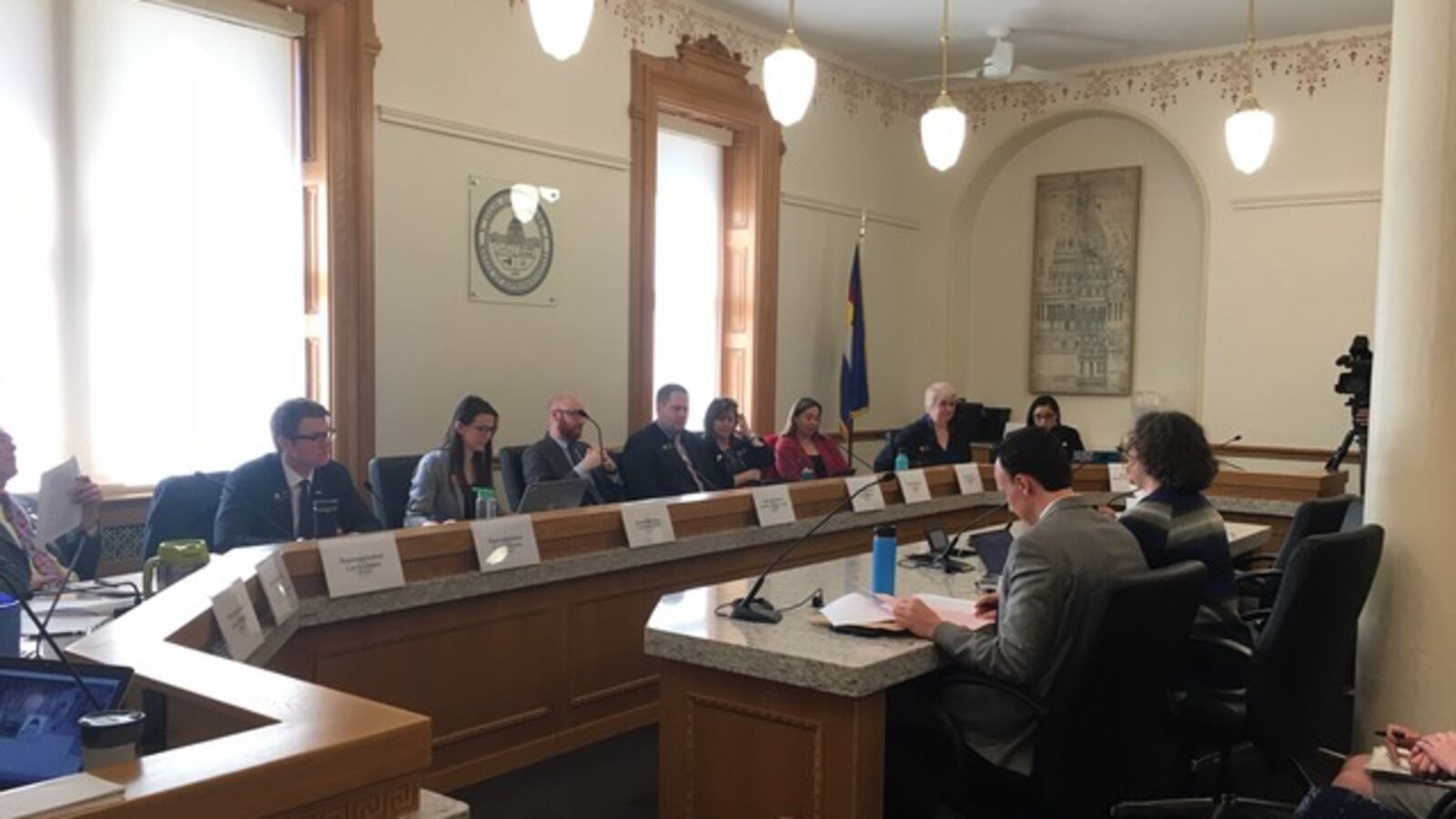A bill before the Colorado legislature would allow younger children to access confidential therapy on their own to fight mental illness and youth suicide.
A stream of Colorado teens on Wednesday told stories of their mental health crises, suicide attempts, and the deaths of friends as the House Public Health Care and Human Services Committee discussed House Bill 1120.
This is the third attempt by state Rep. Dafna Michaelson Jenet to expand access to therapy for middle school-aged children. Previous efforts died in the Republican-controlled Senate. Now Democrats control both chambers, but that doesn’t mean there is consensus on the best way to intervene in what has become a public health crisis in Colorado.
Some questioned the wisdom of allowing 12- to 14-year-olds to seek help from licensed mental health or social workers without parental approval. Current law allows people 15 and over to seek therapy without such consent.
Michaelson Jenet, a Commerce City Democrat, said she’s considering adopting portions of a New York law that allows minors to get therapy without parental consent under certain circumstances. Already, she’s agreed to amend the bill to allow health providers to consult with a child’s parents if they think it’s warranted and wouldn’t harm the child.
She said she expects the committee to vote on the bill March 1, with additional amendments.
The bill also would have the Colorado Department of Education develop mental health and suicide prevention resources for schools around the state.
State Rep. Dylan Roberts, a Steamboat Springs Democrat who is a co-sponsor of the bill, noted that his district has been particularly hard hit by Colorado’s youth suicide crisis.
“Eagle County had 18 completed suicides last year in a community of only about 50,000 people,” Roberts said.
Suicide was the second leading cause of death in 2017 for those ages 10 to 21 in Colorado. Accidents ranked first, with 156 deaths; while 138 youths died by suicide, according to the Centers for Disease Control. That number is up from 72 suicides for the age group in 2008.
“We are in the top in the nation, No. 3, for youth suicide,” Michaelson Jenet said. “What are we going to do about it?”
Susan Marine, who lost two children to suicide, said the Suicide Prevention Coalition of Colorado agrees that youth suicide is a pressing issue that deserves action. But she suggested mental health workers should reach out to parents after a handful of confidential sessions with a child.
“All of our providers believe that it’s important to involve parents as soon as possible,” Marine said. “The parents may be totally unaware of their child’s struggle.”
Brad Miller, with the conservative group Colorado Family Action, went further, suggesting that allowing confidential counseling violates parents’ constitutional rights.
“Kids have limited cognitive ability to make these decisions,” he said.
His group, along with Colorado Christian University and Christian Home Educators of Colorado, opposes HB 1120.
But several young people said not all parents are supportive of their children.
Amy Rodriguez, now 16 and living in Thornton, said she came out to her mom at age 12. Her mother wasn’t supportive, and she couldn’t get counseling without permission until age 15.
“Your life’s more important than a relationship with your parents,” she said.
Riah Hollis, of Denver, talked of her brother’s struggles with gender identity and his suicide attempt. He didn’t want to talk to his parents because they didn’t support his gender transition.
“Sometimes kids don’t have a trusted adult at home. Sometimes a crisis involves parents,” she said.
Becky Zal-Sanchez, a social worker in Denver-area schools, said she’s often frustrated with the inability to provide services to young people without parental consent. “I reach out to parents over and over again, and nobody calls me back.”
Representatives from Mental Health Colorado, the National Association of Social Workers Colorado chapter, and Colorado Rural Health Center are among the supporters of the measure.
Michaelson Jenet is motivated in part by her own son’s mental health struggles. She noted that her son’s counselors reviewed his sessions with his parents, which set him back. “My son stopped trusting mental health providers, so he stopped telling them what was wrong.”
HB 1120 is among several bills aimed at dealing with mental, social, and health issues among young people. Michaelson Jenet is also sponsoring a measure to place social workers in 10 elementary schools around the state, a bill that prohibits conversion therapy for LGBTQ minors, and a bill to further subsidize school lunches for high school students.


